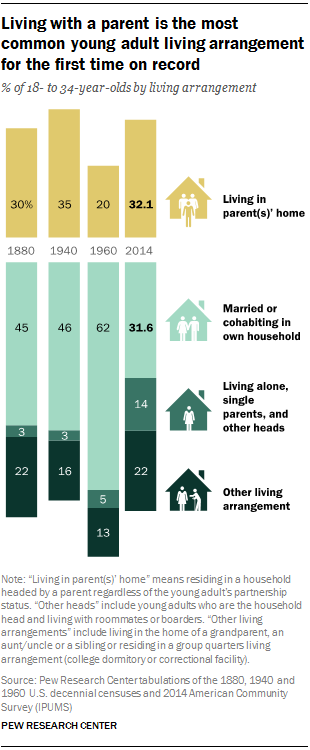Growing up within the church, I heard many words to describe those who were not associated with the church including: non-believers, heathen, the lost, the world, and sinners. Regardless of what you call those outside the church, the number of people claiming no religion is growing.
The Pew Research Center released a new study this month about the changing religious beliefs among Americans. Here are a few facts about those who declare themselves non-religious.
1. They are Young.

© 2013 reynermedia, Flickr | CC-BY | via Wylio
While many U.S. religious groups are aging, the unaffiliated are comparatively young – and getting younger, on average, over time. As a rising cohort of highly unaffiliated Millennials reaches adulthood, the median age of unaffiliated adults has dropped to 36, down from 38 in 2007 and far lower than the general (adult) population’s median age of 46. (Source)
2. Many grew up in religious homes.
Nearly one-in-five U.S. adults (18%) were raised in a religious faith and now identify with no religion. While some young adults who are raised in a non-religious household have chosen to become religious, they are outnumbered by those fleeing their religious up-bringing (The ratio is 4:1.) There is no magical way to ensure that your adult child will follow your faith as a parent, but here is a great book to read about this topic.
3. Their numbers are growing equally among whites, blacks, and Hispanics.
The non-religious are found among whites (24%), blacks (18%), and Hispanics (20%).
4. They are growing among college graduates, and those without a college degree.
College is often seen as the enemy of faith, and the cause of emerging adults leaving the faith. However, those claiming to be non-religious is growing among both groups. “Nones” now claim 24% of college graduates and 22% of those with less than a college degree. As I have stated in other places, college is not the main destructive cause of Millennials’ faith.
5. Labels don’t really stick.

hoto courtesy of Aaron Robert Photography. Copyright 2013. www.aaronrobertphotography.com
It is hard to find a label that describes this group. The article states, “In 2007, 25% of the ‘nones’ called themselves atheists or agnostics; 39% identified their religion as ‘nothing in particular’ and also said that religion is ‘not too’ or ‘not at all’ important in their lives; and 36% identified their religion as ‘nothing in particular.’’ Atheists believe that there is no God, while agnostics is often defined as those who believe that nothing is known or can be known about the existence of God. Many ‘nones’ don’t identify as either maybe because they don’t know the terminology or because they refuse to be classified.
For those who have a passion for the church, the changing religious beliefs here in America causes a reaction within each of us. Here are a few “knee-jerk” responses:
Millennials Suck. Millennials are constantly blasted in the media and in our churches. Some people may believe that Millennials are simply evil, and inherently irreligious. However, I believe in Millennials, and I believe that generational bashing is destructive to the church.
The Youth Pastors of Millennials Suck. I recently read an article which attributed the decline to some degree upon the lack of education among youth workers. While, I acknowledge the men and women whom I pastored have left the church and I will take ownership. It was not due to my lack of education. Please resist the urge to once again throw the youth workers under the bus, haven’t they been through enough?
The Parents of Millennials Suck. While parenting styles definitely affects the religious views of children, it is not the only factor. The weight of guilt and grief that parents bear when their children walk away from the church can be overwhelming.
The Churches in America Suck. If you are a conservative church, then you might be pointing the finger at liberal churches. Difficulties give us the opportunity to either unite or fight each other; unfortunately, the church has often chosen to fight.
Christians can play the blame game. We can point fingers and decide in our own mind who is to blame, only to go about our own lives as nothing has changed. Or we can acknowledge the changes that are happening within our country, and become like the men of Issachar who “understood the times, and knew what they should do.” (I Chron 12:32)
 EA Resources is committed to helping parents, institutions, and churches understand the times and discern how they can better minister to emerging adults. If I can serve your community, e-mail me at gdavid@earesources.org.
EA Resources is committed to helping parents, institutions, and churches understand the times and discern how they can better minister to emerging adults. If I can serve your community, e-mail me at gdavid@earesources.org.














